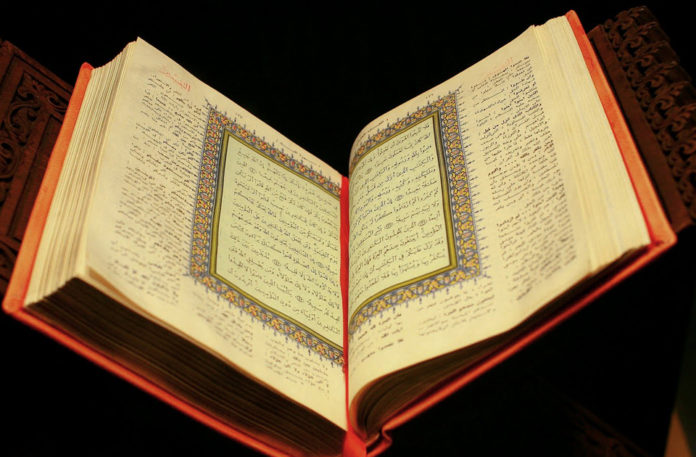The Date of the Prophets Birth
It is a commonly held belief that the birth-date of the Prophet salla Allahu alayhi wa sallam is the 12th of Rabi al-Awwal, in the Year of the Elephant, which is the year that the Abyssinian Emperor Abraha attacked the Kabah with an army of elephants. However, most Muslims are unaware that there has always been great controversy over the precise date of the Prophet’s salla Allahu alayhi wa sallam birth, and it is quite possible that the 12th of Rabi al-Awwal is not in fact the strongest opinion on the matter.
There is no narration in the famous Six Books of ahadith that specifies when the Prophet salla Allahu alayhi wa sallam was born. Rather, the only narration that exists specifies the day he was born, and not the date. Abu Qatada narrates that a Bedouin came to the Prophet and asked him about fasting on Monday, to which the Prophet salla Allahu alayhi wa sallam replied,
| That is the day I was born on, and the day that the revelation began [Narrated by Muslim]. |
Therefore, the Prophet salla Allahu alayhi wa sallam was born on Monday, but Monday of which month and which year? For that, we need to turn to other sources. Again, no standard source book of ahadith mentions any precise date. However, there is a tradition of disputed authenticity, in the Sunan of al-Bayhaqi [vol. 1, p. 79] states that Suwayd b. Ghafla narrated,
| The Prophet salla Allahu alayhi wa sallam and I were born in the same year, the ‘Year of the Elephant.’ |
Certain other evidences also indicate that he was born this year. Hence, from the extended books of ahadith, two pieces of information can be gleaned: that he was born on a Monday (and this is confirmed), and that he was born in the ‘Year of the Elephant’ (and this is most likely correct).
When we turn to books of history, a number of dates regarding the birth of the Prophet salla Allahu alayhi wa sallam are found. Ibn Ishaq (d. 150 AH), the earliest and most authoritative biographer of the Prophet salla Allahu alayhi wa sallam, states, without any isnaad or other reference, that the Prophet salla Allahu alayhi wa sallam was born on Monday, the 12th of Rabi al-Awwal, in the Year of the Elephant. Between Ibn Ishaq and the birth of the Prophet salla Allahu alayhi wa sallam lies almost two centuries, so some more proof is needed before this date is settled on.
Another extremely important early source, Ibn Sad (d. 230 AH) in his Tabaqaat mentions the opinion of a few early authorities regarding the date of his birth. In order, they are:
1) Monday, 10th of Rabi al-Awwal, the Year of the Elephant.
2) Monday, 2nd of Rabi al-Awwal.
3) Monday, no precise date.
4) The Year of the Elephant, no precise date.
It is interesting to note that Ibn Sad, one of the most respected historians of early Islam, does not even list the date of the 12th of Rabi al-Awwal as a possible candidate. Of course the last two opinions are correct and do not clash with any specific date, but by quoting earlier authorities who only gave this information, it can be noted that the precise birth date of the Prophet salla Allahu alayhi wa sallam was not known to them, hence they only gave the information they knew.
Ibn Kathir (d. 774), the famous medieval historian, also lists many opinions in his monumental al-Bidaya wan–Nihayah regarding the birth-date of the Prophet salla Allahu alayhi wa sallam. He states that the majority of scholars believed that the Prophet salla Allahu alayhi wa sallam was born in the month of Rabi al-Awwal, but differed regarding the precise day of the month. Some of these opinions are:
1. 2nd Rabi al-Awwal. This was the preferred opinion of Abu Mashar al-Sindi« (d. 171 AH), one of the earliest scholars of sirah, and of the famous Maliki jurist and scholar, Ibn Abd al-Barr (d. 463). It was also listed by al-Waqidi (d. 207 AH) as a possible opinion. [Al-Waqidi is one of the most reputable early historians of Islam, despite his weakness as a narrator of ahadith].
2. 8th of Rabi al-Awwal. This was the opinion of the Andalusian scholar Ibn Hazm (d. 456 AH), and many of the early scholars. Imam Malik (d. 179 AH) reported this opinion from al-Dhuhr (d. 128 AH) and Muhammad b. Jubayr b. Mutim (a famous Successor), amongst others. Ibn Abd al-Barr, while subscribing to the first opinion, said that this opinion was the opinion of most historians. Ibn Diáya (d. ~ 610 AH), one of the first to write a treatise on the birth of the Prophet salla Allahu alayhi wa sallam, also considered this date to be the strongest opinion.
3. 10th of Rabi al-Awwal. This has been reported by Ibn Asakir (d. 571 AH) from Abu Jafar al-Baqir (d. 114 AH), a descendant of the Prophet salla Allahu alayhi wa sallam and an alleged imam of the Shites. It is also the opinion of al-Shaba (d. 100 AH), a famous scholar and student of the Companions, and al-Waqidi (d. 207 AH) himself.
4. 12th of Rabi al-Awwal. This is the opinion of Ibn Ishaq (d. 150), who reported it without any reference. In other sources, it is reported as the opinion of Jabir and Ibn Abbas, but there is no isnad found in any primary source book to them. Ibn Kathir writes, and this is the most common opinion on the matter, and Allah knows best. I could not find this opinion attributed to any other authorities of the first few generations of Islam.
5. 17th of Rabi al-Awwal. This was the opinion of some Shiite scholars, and is rejected by most Sunni« authorities.
6. 22nd of Rabi al-Awwal. This opinion has also been attributed to Ibn Hazm.
7. In the month of Ramadan, without a specific date, in the Year of the Elephant. This was the opinion of the famous early historian al-Zubayr b. al-Bakkar (d. 256), who wrote the first and most authoritative history of Makkah, and some early authorities agreed with him.
8. 12th of Ramadan, in the Year of the Elephant. This opinion was reported by Ibn Asakir as being held by some early authorities.
These are the most predominant opinion regarding the date of the Prophets salla Allahu alayhi wa sallam birth. However, this is by no means comprehensive. For example, a modern researcher has concluded that the 9th of Rabi al-Awwal is the strongest candidate for the exact date, whereas a few earlier authorities even disputed the very year, claiming that it was ten, or twenty-three, or forty years after the Year of the Elephant.
Why is the opinion of the 12th of Rabi al-Awwal so popular?
As can be seen, there are numerous opinions regarding the precise date of the birth of the Prophet salla Allahu alayhi wa sallam, some of which differ about the month, and others even the year. However, an overwhelming majority of historians and scholars agreed that he was born on a Monday, in Rabi al-Awwal, in the Year of the Elephant, which corresponds to 570 (or 571) C.E.
Within the month of Rabi al-Awwal, more than half a dozen opinions exist. Out of all of these dates, the two dates of the 8th and the 10th were in fact more popular opinions in the first five centuries of Islam, and in particular the former opinion was given greater credence. Why, then, is the date of the 12th of Rabi al-Awwal considered the most popular in our times, so much so that most people are unaware of alternate opinions? This question is all the more compelling in light of the fact that Ibn Ishaq narrates this opinion without any reference. This can be explained, and Allah knows best, by two factors.
Firstly, the popularity of Ibn Ishaq himself. His book of sirah is a primary source of information regarding the biography of the Prophet salla Allahu alayhi wa sallam. Since his book is a standard reference for all later writings, many scholars simply copied and pasted his opinion, disregarding the other opinions (some of which were given more weight by earlier authorities).
Secondly, and this perhaps is a stronger factor the first time that a group of people decided to take the birthday of the Prophet salla Allahu alayhi wa sallam as a public day of celebration (i.e., the inception of the celebration of the mawlid), it so happened that they chose this opinion (viz., the 12th of Rabi al-Awwal). Hence, when the practice of the mawlid spread, so did this date. This also explains why Ibn Abd al-Barr, writing before the conception of the mawlid in the fifth century of the hijrah, stated that the most common opinion amongst historians was in fact the 8th of Rabi al-Awwal, and yet Ibn Kathir, writing three centuries later, after the mawlid had been introduced as a public festival, stated that the 12th of Rabi al-Awwal was the most common opinion.
Conclusion:
The exact birth-date of the Prophet salla Allahu alayhi wa sallam has always been the subject of dispute amongst classical scholars. Nothing authentic has been reported in the standard source books of tradition, and this fact in itself shows that it was not held in the significance that later authorities did. The 12th of Rabi al-Awwal is a strong candidate for being the exact birth date of the Prophet salla Allahu alayhi wa sallam, but the 2nd, 8th and 10th are also viable and well-respected positions, with the 8th being the weightiest.
As to who was the first to celebrate the mawlid, and how it spread in Muslim lands, that shall form Part II of this article, insha Allah.
Footnote
Adapted from Islam21c.com
(NOTE: If you want to build a strong and powerful relationship with Allah, check out Islamia TV, where you can watch Islamic speakers from across the globe deliver inspiring and motivational courses. Learn more at www.islamia.tv.)





















